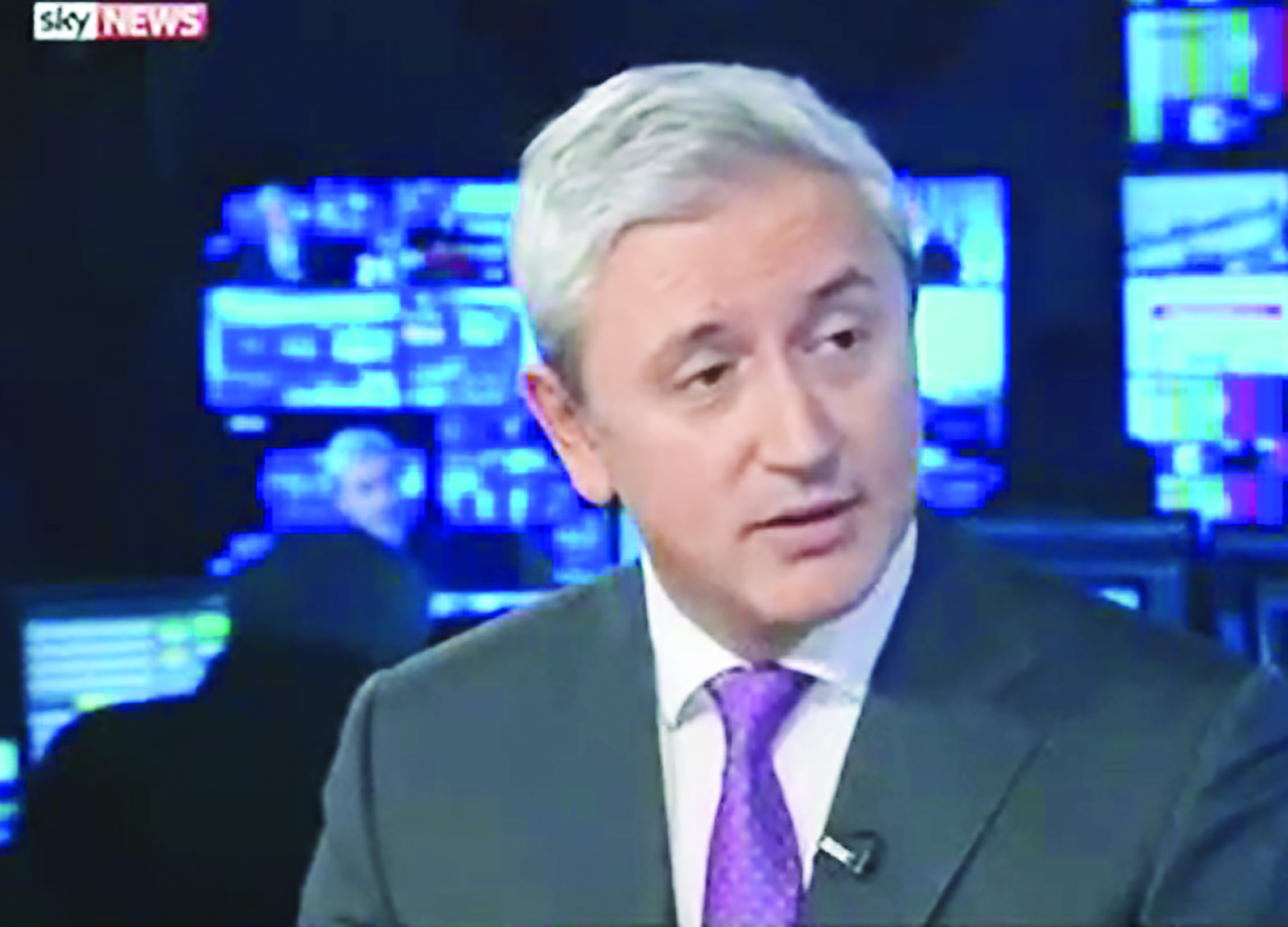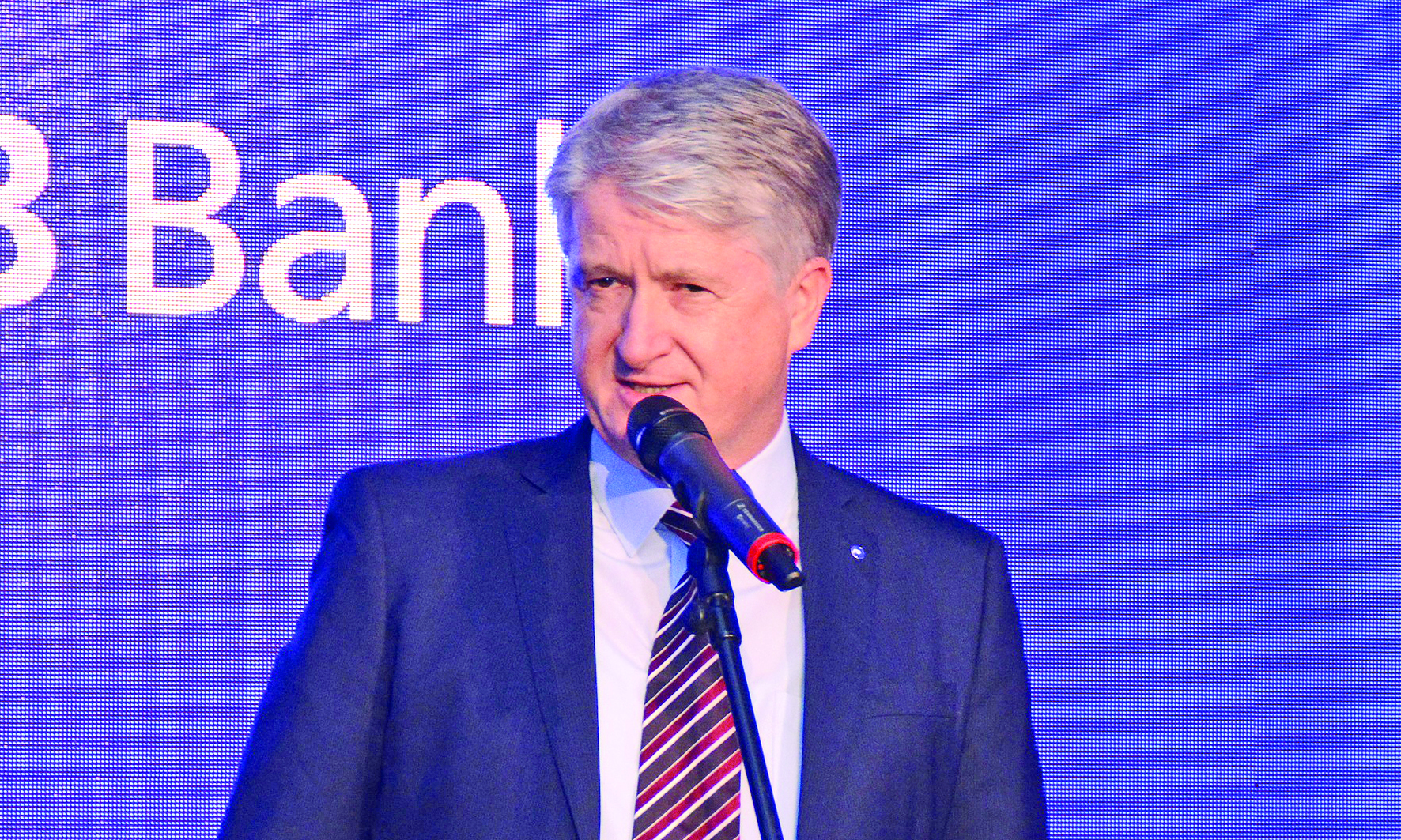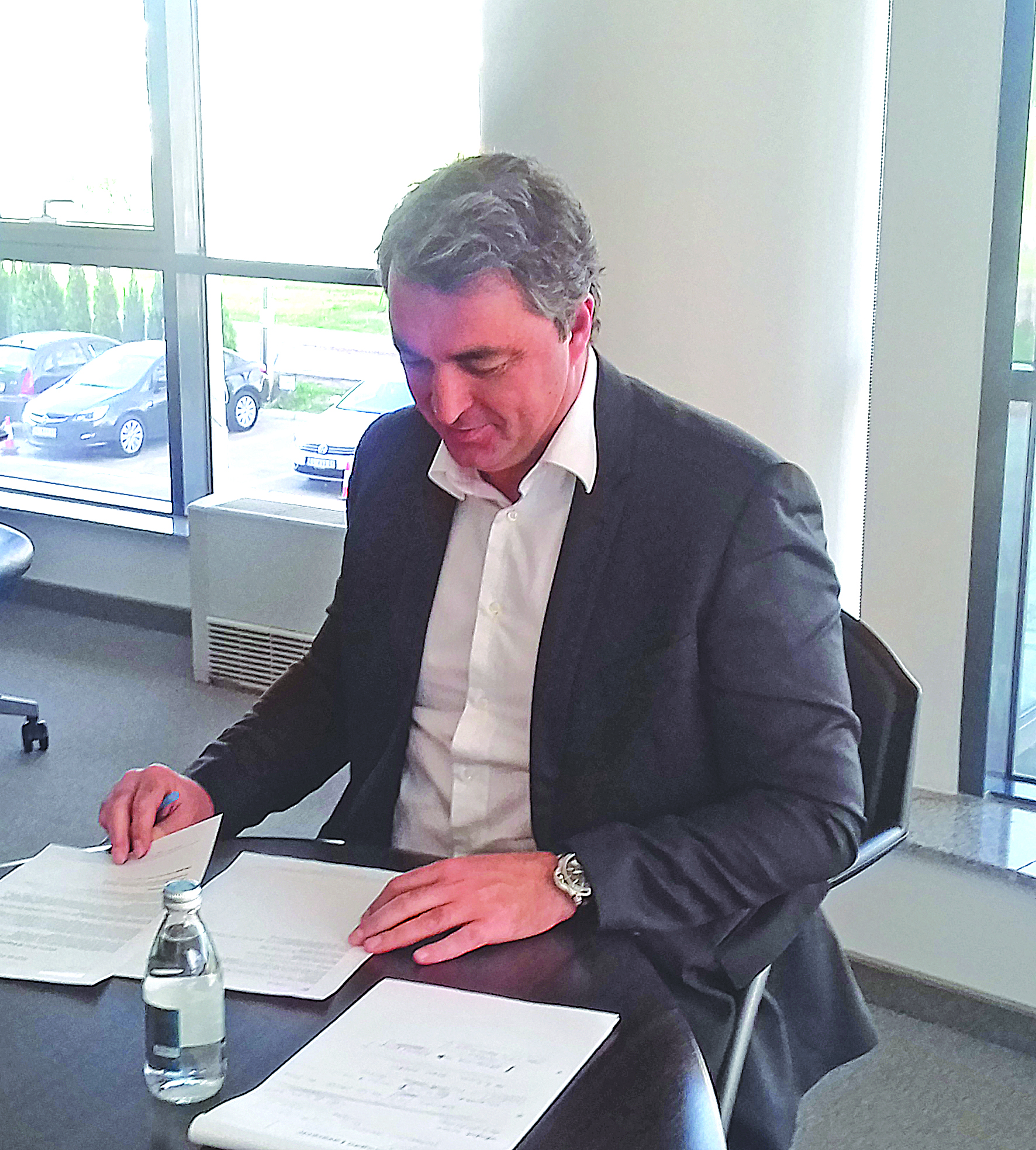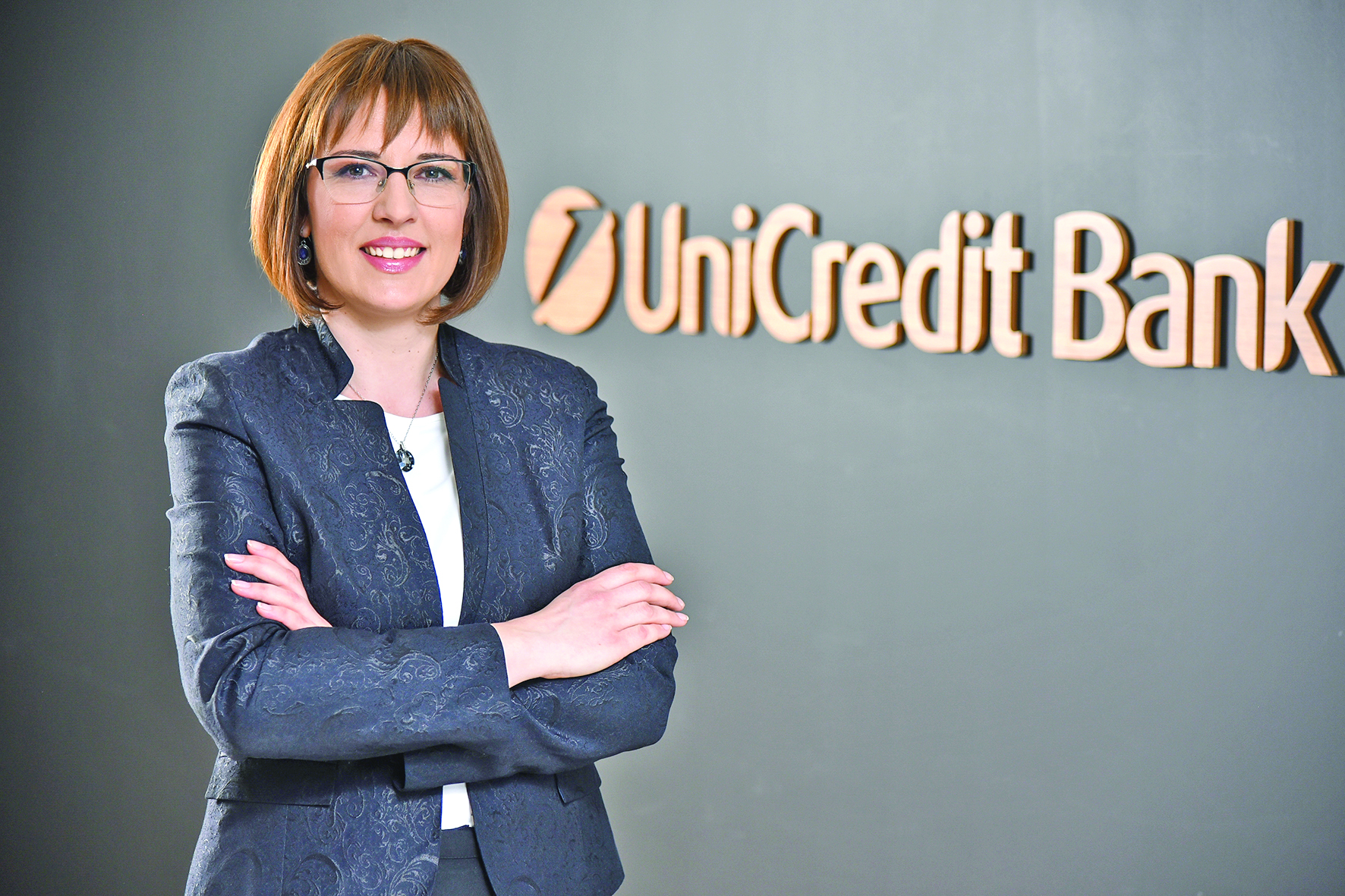Moody’s Investors Service, has upgraded the Government of Serbia’s long-term issuer and senior unsecured ratings to Ba3 from B1. The outlook has been moved to stable (from positive).
The key drivers of the upgrade in Serbia’s senior unsecured and long-term issuer ratings are:
(1) Serbia’s notable fiscal consolidation which has halted the increase in its debt burden and reduces risks to the fiscal position; and
(2) Recent structural reforms which have increased the resilience of Serbia’s economy, supporting potential growth.
The stable outlook reflects the balanced risks to Serbia’s credit profile at the Ba3 rating level.
We asked the leading banks in Serbian market to comment:
To what extent have improved credit ratings of the country, compared to other factors, affected the current credit policy, i.e. interest rates in the domestic market?
Draginja Đurić, President of Banca Intesa Executive Board
Significant impact on the nation’s cost of borrowing

Used as a key tool for investors to assess a country’s credit worthiness, sovereign country ratings have a significant impact on the nation’s cost of borrowing, which constitutes the most important component of the banks’ funding base. Therefore, an improvement in the country rating that sustainably drives the cost of bank funds lower can pave the way for credit institutions to reduce interest rates on lending. Interest rates in Serbia, which have been brought down to all-time lows amid favorable conditions in the domestic and international markets, supported by rating upgrades and rating outlook improvements by all three main rating agencies, confirm this. Moody’s recent upgrade of Serbia’s sovereign rating, which follows upward rating outlook assessments by Standard & Poor’s and Fitch last year, acknowledges the success of the government’s fiscal consolidation program and the continuation of key structural reforms that have boosted the resilience of the domestic economy. Still, a further reduction in the country’s borrowing cost is vital for banks to continue to lower interest rates. This largely depends on the further implementation of Serbia’s stand-by arrangement with the IMF, a strong focus on corporate restructuring of public enterprises, as well as the continuation of the stabilizing and growth-oriented monetary policy with a floating dinar exchange regime. On the external front, a stable geopolitical situation in the EU would further accelerate growth and reform momentum in Serbia and most probably materialize in another cycle of positive rating and outlook actions.
Zoran Petrović, Chairman of the Executive Board of Raiffeisen Bank
The strengthening of investors’ confidence

Upgrade perspective, whereas Moody’s upgraded the country rating by one notch to Ba3. Usually, credit rating upgrade supports enhancement in the credit risk perception, reducing the risk premiums and indirectly affecting interest rates when banks are borrowing funding on international markets. Nonetheless, the business financing models of local banks changed in the last few years, shifting from wholesale funding to local deposits, so in that way, the rating upgrade did not quite affect the pricing models directly, but rather indirectly. Hitherto, the rating upgrades are undoubtedly sending positive signals to foreign investors and have supported the strengthening of investors’ confidence with the authorities, which resulted in steady growth of FDIs. At any rate, interest rates touched the bottom last year and reverted the trend upwards due to the growth in inflation but also supported by the expected shift in the monetary policy framework in 2018.
Dr Vladimir Krulj – President of Board of Directors of Komercijalna Banka
International recognition of success in implementing reforms

The decision made by the renowned rating agency Moody’s to upgrade Serbia’s long-term credit rating for borrowing in domestic and foreign currency from B1 to Ba3 is based on realistic economic assessment of the accomplished results in the reforms conducted by the Serbian Government, primarily in the segment of fiscal consolidation, dynamic economic growth which was better than projected, successful implementation of reform measures agreed with the IMF within the framework of the current standby arrangement, and progress made in the EU accession process. It is certain that the upgraded credit rating will have a positive impact on interest rates in the domicile market, especially when it comes dinar interest rates. A better credit rating will enable Serbia to borrow under favourable conditions in the international capital market. It is very important that Moody’s has moved the outlook for further upgrade of the credit rating to stable, that the projected annual economic growth this and next year will be 3% and 4% respectively, and that the fiscal deficit and public debt will continue to decline. This decision by Moody’s is yet another international recgonition to the Serbian economic authorities of their success in implementing reforms, and will definitely contribute to a better image of Serbia’s economy in the eyes of international investors and international financial institutions.
Slavko Carić, Chairman of the Executive Board of Erste Bank
The upgrade is important for future issues

Empirical research and experiences of various countries, especially after the last financial crisis, show that markets perceive both positive and negative changes in the countries’ economies before rating agencies decide to formally change their ratings and outlooks. We can observe the Serbian debt market in that context too, where, in the last year and a half, there has been a significant decline in yield both from primary issue and in trading. The reasons for this were of technical nature like the introduction of benchmark bonds, and stronger development of the secondary market, as well as fundamental where investors recognized that fiscal and economic indicators were better than projected. The latest rating upgrade came after a significant compression, and doesn’t have a decisive influence on yields at this moment. But the upgrade is important for future issues where higher rating may affect the required yield due to lower risk premiums.
Marinos Vathis, president of the Executive Board, Vojvodjanska banka ad Novi Sad
Excellent sign for the investors

Recent improvement of the credit rating of Serbia is an excellent sign for the investors, confirming the sound macroeconomic stability of the country. It should contribute mainly to the stronger FDI inflow in Serbia. I don’t think it will contribute to the change of the level of interest rates, as I don’t think interest rates will go any lower. In the last three years, the Central bank cut key rate several times reaching the current level of 4.00% as a result of fiscal consolidation, exchange rate stability, low inflationary pressures, relaxation of monetary policy, low interest rates in the euro zone and strong competition among banks. So we have today in the banking sector interest rates on loans at the lowest levels, following the trend on low interest rates on deposits, as the main source of financing the lending activity in Serbia.”
Branko Greganović, Chairman of Executive Board of NLB Banka Beograd
Better loan terms both for citizens and businesses

Lower interest rates, both active and passive, which in certain countries have dropped to below zero, are a result of latest developments on financial markets, and a trend which has been going on for some time now. There are several factors that have caused this. In Serbia, lower interest rates are definitely also a result of the upgraded credit rating which has caused the drop, especially when financing sources come from abroad. The costs associated with the country’s risk are an integral part of the final costs of loans that clients pay back to their banks so, due to the improved credit rating, the loan interest rates have been reduced in proportion to the share that the said costs have which, all together, resulted in interest rates hitting their lowest level in the last twenty years.
Further upgrade of the country’s credit rating will translate into better loan terms both for citizens and businesses. Still, I believe that an even more important thing for us is to fully understand a great importance of credit ratings, and the fact that the higher credit rate is also a result of a shift in perception of Serbia in the eyes of international financial institutions which see Serbia as a stable market, as well as a result of the implementation of reforms. First and foremost, the improved credit rating sends a positive signal to domicile and foreign investors who consider stability and the predictability of economic environment as the most important prerequisite for investing on a certain market that is even more important than interest rates.
Dragan Lazarević, Chairman of Executive Board of Direktna Banka ad Kragujevac
Good news and excellent signal for investors

In its widest sense, a country’s political risk and continuation of stability are probably the most important elements of investment climate, immediately followed by credit rating, i.e. fiscal stability. When these two aspects are positive for a considerable amount of time, interest rates on the market can be lowered.
The successful implementation of the fiscal consolidation programme has lead to a drop in the public debt share in GDP, as did the implementation of the required structural reforms, which resulted in the country’s being given an upgraded credit rating.
The improved credit rating is good news and sends an excellent signal to investors that Serbian economy is heading in the right direction, and that the country is now more attractive and appealing for future investments.
Some signs of the impact that better credit rating has on the credit policy are already apparent, while further decline in interest rates will also depend on global developments. In the following period, interest rates are expected to rise globally hence the country’s improved credit rating will, first and foremost, contribute to mitigation of the effects that the possible increase in borrowing costs on the global market might have.
Kenan Bozkurt , Chairman of the Executive Board of Halkbank ad Beograd
More share for the country’s potentials

Every passing day, the world is getting smaller thanks to technological development. Due to this fact, we cannot see whole picture without understanding the trend in the world. We witnessed huge inflow to the emerging markets in the past decades and those markets took the benefits from it.
After a long and devastating economic crisis, now Serbia is again back on the right track. In 2015 GDP started to increase after long period of decrease. Real sector activities are on the trend of increasing and FDI too.
Capital, as usual and expected, is looking for stability and trust first. Serbia is promising these to the investors. There are plenty of possibilities in almost all sectors for foreign investors. That’s why FDI is on the trend of increasing.
This safe environment is getting response from related rating agencies and/or foundings. Serbia is now 5th rank on OECD risk classification list, previously it was on 7th place. When a country becomes safe for investors, naturally risk premium of the country starts to drop. Also, it increases competition to get more share for the country’s potentials, decreasing trend of interest rates is the result of those facts and we think that the country will enjoy this for a long time.
Sandra Vojnović, Member of the Management Board, CFO, UniCredit Bank in Serbia
Positive results of fiscal consolidation

The fact that Moody’s upgraded Serbia’s credit rating for long-term borrowing in local and foreign currency is certainly a step forward. It represents a consequence of positive results of fiscal consolidation and improvement of institutional framework that can significantly support the further growth of the economy. In market conditions in which country rating improvement is not is not so usual, this kind of decision is a good signal to foreign investors that consider credit rating as one of the factors when making investment decisions. This decision should contribute to reducing the cost of borrowing for Serbia, especially in cases when investors are first-class financial institutions. However, it is necessary to consider that, due to the fact that interest rates in the country have already experienced a significant decline in recent years, space for their further reduction is not large and therefore drastic drop in interest rates cannot be expected.